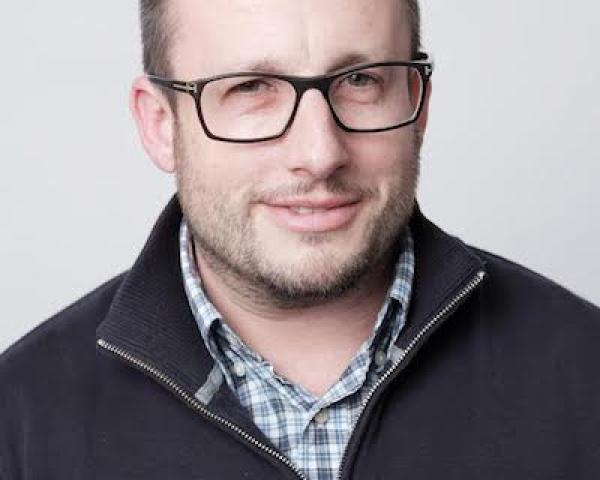- We are in a bubble. By "we," I mean, those who are here at EXEC InsurTech and see the opportunity. Not everyone sees the world this way, yet! Many of you know I'm a firm believer that disruption is here and now, coming at us thick and fast.
- Stand out. Whatever reports you read, be it the tech journals, insurance news or the traditional annual reports from existing carriers, they all talk to the disruption of the traditional insurance carrier (following the "unbundling" of the banks). There are now hundreds of start-ups in this space. It always amazes me to hear Sabine and theStartup Bootcamp team talk to how many start-ups they talk to prior to shortlisting to their final cohort. Make sure that when you are on stage and you have three minutes to pitch, you stand out. Don't be the me-too.
- There have been no really big failures yet. There is excitement and buzz around what people are up to, where disruption is coming from and what part of the insurance value chain people are attacking (sales, underwriting, distribution, etc.). Given this, there has been record investment in the sector; the prize is huge, with a $5 trillion market opportunity. Matthew Wong and the folks over at CB Insights continue do an amazing job at tracking deal flow, more than $1 billion so far in 2016. The example nearest to a failure that I called out was Zenefits, given its recent re-valuation. Another one was mentioned from the audience -- CSS in Switzerland, I believe, but please correct me if I have this wrong.
- Partnering is key. Given the history, tradition and especially the speed of the industry, my view is it's best to partner and work with the traditional players as opposed to going all out head-to-head today. This may, of course, change over time. There are some really great examples of partnership already.
- Evolution or revolution? This is one of my favorite topics. Unlike banking, where I believe #FinTech has unbundled individual services ofmatthew a bank, insurance start-ups have taken a different approach. Underwriting, for example, is not a category all unto itself nor one that I have seen folks go after in isolation. All need other parts of the insurance value chain to be successful. There are great examples of start-ups evolving each part of the value chain, across products, distribution, sales, etc. Matteo Carbone put together some good thinking a while back on this with his mental framework covering awareness, choice, purchase and use, as did Venture Scanner here in a series of visuals. For now, we are primarily digitizing and simplifying the existing approach and process.
- Product mindset. We simply need to move away from this. It will take generations for a complete mindset change. It will happen, in my view, when start-ups move to an "all risks" or truly customer-centric approach (not just better service experience). My two golden rules here remain: relevance and convenience. At what point does insurance become frictionless?
- Every carrier is partnering. Pick your partners carefully. I was talking to one of the start-ups that has now engaged in 30-plus pilots. While this is really encouraging and great for the start-up, every carrier is a) partnering, b) building a lab c) working with an accelerator. Make sure you don't become part of a badge-collecting journey. Are your and the insurance carrier's ambitions, culture and outcomes aligned? Make sure we are all walking into these partnerships with eyes wide open and with a clear plan of what happens if a partnership is successful.
- AI/data/bots are big and cool. That is all! There are some great use cases and examples developing here. We heard from SPIXII and Insuragram, just two examples of how AI and bots are looking to solve some of the business and engagement challenges.
- Don't be the fad. See #7 and #8. Over the last few years, I've seen the rise and rise of big data. Then came digital. Now it's blockchain and chat bots. My point here is that these are all great technologies. But don't be the technology looking for a business problem to solve -- sage old advice you will hear again and again.
- Beware of the silos. Many start-ups are working with global carriers. Just because we work with them in one country doesn't mean they all talk, are connected seamlessly internally and exchange ideas and key learnings. The same is true for in-country and across lines of business. Many people operate in silo'ed P&L models where you may end up doing multiple different engagements with the same global carrier. Joining the dots may not always be right for you. Think speed! You're in a relay race. Moving parts of an organization to the start line is often easier than moving the whole team at once. As the saying goes,"think big, start small, act quickly."
- Customers (end customers) need to be ready. With all these cool new ideas and apps that can disrupt traditional insurance, our challenge is often not whether something can be done but whether customers will be ready. We know it can be done; everything is possible! But there are many reasons why customers take a while, often a long while. Telematics is 25-plus years old, but it's only now becoming more widely adopted. Even now, take-up is still relatively slow (except in Italy).
- Talent. Above all, there is an arms race for talent out there. Bringing together InsurTech and traditional insurers is one of the best ways of ensuring (no pun intended!) that we continue to attract and leverage some of the greatest talent in the marketplace, promoting Insurance along the way as a great place to excel and challenge the status quo.
My Top Tips From EXEC InsurTech
Think speed! You're in a relay race. Moving parts of a partner organization to the start line is often easier than moving everyone at once.








